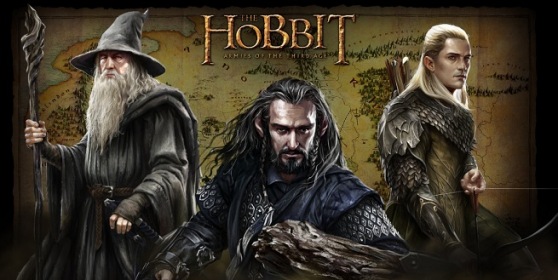Kabam is launching its third-party publishing business today. Or, rather, it is unveiling a business that has been operating in secret for some time. It already has 15 third-party game developers on board making use of its mobile and social game publishing tools.
[aditude-amp id="flyingcarpet" targeting='{"env":"staging","page_type":"article","post_id":637999,"post_type":"story","post_chan":"none","tags":null,"ai":false,"category":"none","all_categories":"games,","session":"A"}']Kabam focuses on creating free-to-play hardcore games on the web, Facebook, and mobile platforms. It has had big hits like Kingdoms of Camelot: Battle for the North, the top-grossing game on the Apple iTunes App Store last year and part of a franchise that has generated more than $100 million in revenue to date. Kabam is trying to disrupt the makers of $60 console games by offering addictive games that function as online services and tap microtransaction business models.
Now it plans to give those same advantages to third-party game makers. In doing so, it is following the strategy of other successful digital game publishers such as Zynga, which use an existing big distribution channel to market third-party games for lower costs.
“Game developers around the world recognize that Kabam customers are among the most enthusiastic free-to-play gamers,” said Amit Ranade, the president of Kabam Publishing, in a statement. “On a per-player basis, Kabam monetizes games at eight times the rate of other companies. We have and will continue to hand select extremely compelling games that our players truly enjoy.
“Kabam also has one of the industry’s most sophisticated performance marketing operations,” Ranade added. “We know how to drive discovery, engagement, and monetization of games arguably better than anyone else in the industry.”
Last year, Kabam’s revenues grew 70 percent to more than $180 million, and monthly traffic at Kabam.com now exceeds six million unique visitors. Kabam’s third-party developer games include Wartune from Reality Squared Games in China; Clash of the Dragons from 5th Planet Games in Roseville, Calif.; and Book of Heroes from Venan Games in Cromwell, Conn. Other developers are in Hungary, Japan, and Korea. Kabam expects to have 50 third-party games by year end.
“Partnering with Kabam in bringing Shadowland Online to the market has been one of the best decisions we have made,” said Michael Zhang, the CEO of ZQGame Inc. in China. “The entire process was fast and effective and a pleasure to go through. The move quickly brought a unique group of loyal, hardcore players to our game. Since publishing with Kabam, Shadowland has seen a sharp increase in engagement, boosting our monetization to a whole new level.”
Brandon Curiel, the CEO of Venan, said, “Kabam’s ability to market effectively is second to none. Book of Heroes is now a Top 100 grossing game; in only two short months, we’ve seen a 10x increase in its daily active users. We would never have been able to generate these results on our own, and we couldn’t be happier with our Kabam partnership.”
Venan’s Book of Heroes attracted few players for almost one year before Kabam published it on the iOS platform. After six weeks with Kabam, Book of Heroes became a top 100 grossing app. The same goes for Reality Squared’s Wartune web game, which now generates more than $1 million a month. Kabam has also begun publishing games with big licenses, including The Hobbit (pictured at top), The Godfather, and the upcoming Fast and Furious 6. Seven Kabam games generate more than $1 million a month.
[aditude-amp id="medium1" targeting='{"env":"staging","page_type":"article","post_id":637999,"post_type":"story","post_chan":"none","tags":null,"ai":false,"category":"none","all_categories":"games,","session":"A"}']
“Free-to-play games are clearly disrupting the video game industry,” said Kabam cofounder and CEO Kevin Chou. “Potential gamers all over the world already have sophisticated mobile phones or tablets, so they no longer have any motivation to buy a $400 console or spend $60 on a new game. Kabam is leveraging its technology to be the leader in free-to-play games, and third-party developers will have a crucial role in that effort.”

